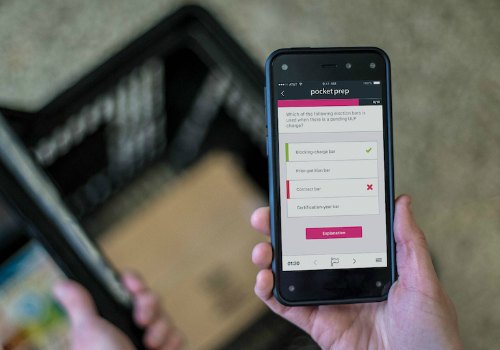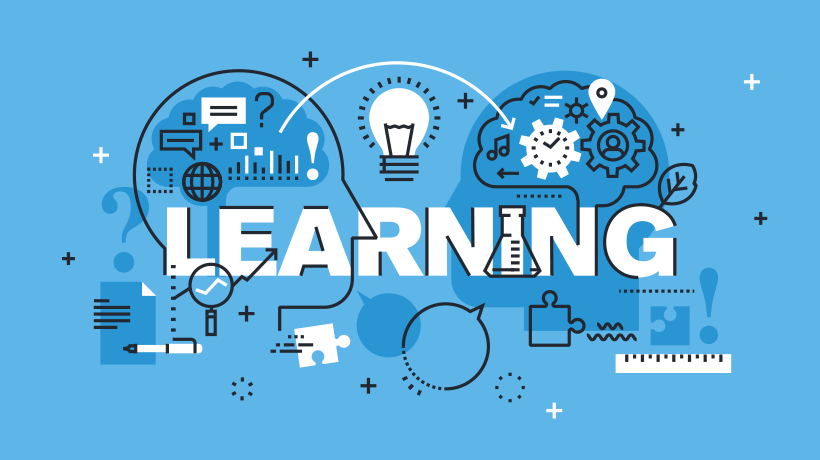How Mobile Learning Helps Cultivate Strong Study Habits
Sadly, many people fail to reach their full educational and career potential because of poor study habits. These individuals may have the intellectual capacity to do well in school, but due to a variety of factors, fail to pass exams or do well in coursework. The result? Failing to be admitted into academic and vocational training programs, not being able to pass certification and licensing exams, and eventually resigning themselves to mediocre careers.
The reasons why a person may be unable to pass an exam are varied. In some cases, a genuine learning disability may be the cause. But for many, not learning strong study habits and skills at a young age can hinder that person's ability to achieve future academic success.
Fortunately, effective study habits and skills can be learned at any age. What is even more exciting is that current technology makes it easier than ever for people to study effectively. Students and professionals can use a variety of mobile apps to prepare for exams. In fact, McGraw-Hill Education released a study in 2015 showing that 81 percent of students surveyed used mobile devices to study. Even more interesting is that while students felt that learning on a mobile device was more efficient, students were also spending more time studying!
What does this tell us? First of all, it suggests that there is a genuine enthusiasm for using mobile devices to learn new things. It also suggests that technology can be empowering for students who may, for whatever reason, not benefit from traditional study techniques such as reviewing notes, reading paper textbooks or participating in study groups with peers.
Here are just a few of the ways that mLearning helps people cultivate strong study habits:
- Flexibility.
Not everybody has the time or attention span to allow them to study for hours on end. Well-designed mobile learning apps such as those produced by Pocket Prep allow students to take study breaks and pick up studying exactly where they left off. Flexibility is important to the modern learner as available study time can vary greatly depending on work schedules, family activities, and other time commitments. - Portability.
The traditional full-time student (someone in their late teens or early 20s who is supported by their parents) is becoming less of the norm. Students today may just as likely be someone who attends school part-time, works a full-time job and who is supporting or caring for a family. These students may not have the time to settle in at the school library or even at home for an evening of studying. Instead, they need to study while commuting, on a break at work or while waiting for their kids to finish sports practice. Being able to pull out a phone or tablet and study while on the go can make a big difference in someone's academic success. The portability of mobile devices today makes it easier to access study materials from virtually anywhere. - Customization.
Not everybody learns the same way. Some people benefit from taking quizzes while others may learn best from videos, podcasts and reading e-books. Recent studies point to the benefits and effectiveness of bite-sized learning, or shorter e-learning modules, for corporate training. Fortunately, mobile technology can accommodate just about any learning style. Students can customize an mLearning study program that works best for their unique learning style and thus increase the chances of success in passing exams or obtaining professional certifications. - Accessibility.
Not so long ago, smartphones and tablets were major investments. Costs have come down significantly and almost everyone today owns at least one smartphone or tablet. Similarly, the costs for mobile learning programs and apps are minimal. In most cases, mobile learning apps are less expensive than conventional textbooks. These apps are also far less expensive than traditional in-person or online exam prep courses. - Immersion.
Many people find that they learn best if they can "immerse" themselves in the topic they are studying. Traditional study methods don't always allow for immersion because study materials aren't portable or accessible. Mobile learning allows the student to access study materials 24/7. In fact, students also have the option of selecting the medium they want to engage with. Earlier in the day, when they are feeling sharp, students might prefer to take quizzes or read study guides. Later in the day, the student may prefer more passive study methods such as listening to a podcast or watching a video. Mobile learning allows users to integrate studying into their daily lives. Over time, the student can achieve true mastery over the subject matter which improves their chances of success.
New learning technologies can have an incredible impact on an individual’s life. Students and professionals who truly want to succeed can use these mobile learning technologies to improve their study habits, obtain the knowledge, and achieve success.








